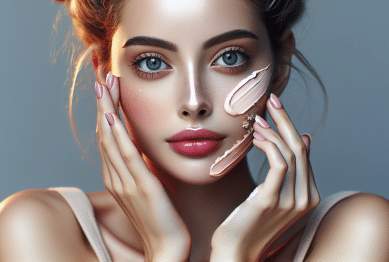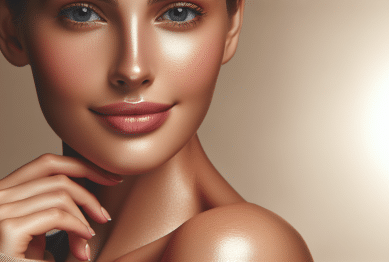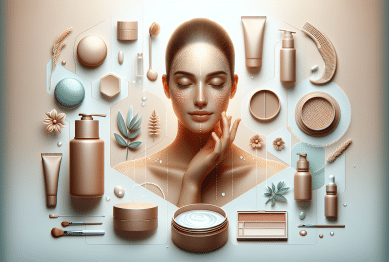Unlock radiant, healthy skin by exploring daily habits that nurture beauty and wellness. This guide reveals how hydration, sleep routines, mindful nutrition, and barrier-friendly skincare can impact complexion and confidence with science-backed facts. Discover simple rituals for glowing results.
Making Hydration a Daily Ritual
Hydration is at the core of glowing skin. Water helps the body flush out toxins and keeps cells plump, supporting a fresh, dewy complexion. Even mild dehydration can make your face look dull, highlighting fine lines and loss of elasticity. According to skincare experts, maintaining adequate fluid intake assists the body’s natural repair processes and supports the skin’s barrier, making it better able to handle daily stressors.
How much water each person needs can vary depending on climate, lifestyle, and other factors, but aiming for about eight glasses per day is a solid starting point. Some fruits and vegetables provide extra hydration as well. Cucumbers, melons, and strawberries, for example, have a high water content that can help replenish skin from the inside out. Including these in your diet may support the radiant look so many desire (Source: https://www.hsph.harvard.edu/nutritionsource/water/).
Topical hydration matters, too. Applying a gentle moisturizer after cleansing locks in moisture and reinforces the skin’s protective barrier. Ingredients like hyaluronic acid and glycerin attract water and keep the outermost layer of skin supple. Experts recommend choosing products with minimal fragrance and simple ingredient lists to avoid irritation. Consistency is key—regular, gentle hydration both inside and out can drive visible transformation over time.
The Impact of Quality Sleep on Skin Health
When people talk about ‘beauty sleep,’ there’s real science behind the phrase. During sleep, the body repairs and regenerates tissues—including skin. Growth hormone, released while resting, stimulates cell turnover and collagen production, both crucial for smoothness and elasticity (Source: https://www.sleepfoundation.org/physical-health/how-sleep-affects-your-skin).
Poor sleep can lead to increased levels of the stress hormone cortisol, which has been associated with breakouts, puffiness, and acceleration of visible aging. Regardless of age or gender, getting seven to nine hours of restful sleep can make a significant difference in overall appearance. If falling or staying asleep is challenging, try limiting screen time before bed, adopting calming routines, or exploring sleep-supportive foods like cherries or almonds.
Establishing a nighttime ritual helps signal your body that it’s time to wind down. Cleansing the face gently, applying a nourishing moisturizer, and using a cool, clean pillowcase can add to the restorative effects. Sleep is not only about avoiding dark circles; it helps the skin recover from sun, pollution, and environmental stress. Prioritizing rest is an investment in future radiance, inside and out.
Nutrition’s Link to a Clearer, Brighter Complexion
What’s on the plate can be as powerful as what’s in the skincare cabinet. A diet rich in antioxidants, vitamins, and healthy fats nourishes the skin from within. Colorful vegetables like carrots and sweet potatoes supply beta-carotene, which the body converts into vitamin A—a nutrient crucial for cell repair and barrier strength (Source: https://www.ncbi.nlm.nih.gov/pmc/articles/PMC6110213/).
Omega-3 fatty acids, found in walnuts, chia seeds, and salmon, calm inflammation and keep skin soft. On the other hand, highly processed foods, sugar spikes, and unstable fats can disrupt the microbiome and barrier, leading to issues like breakouts, redness, or flakiness. Introducing gradual swaps—such as choosing whole grains and leafy greens—may pay off in both wellness and beauty over time.
Vitamin C plays a special role, supporting collagen production and helping protect from the effects of sun and pollution. Citrus fruits, bell peppers, and broccoli are delicious sources. Including a variety of nutrient-dense foods can support not just a healthy gut, but also a clearer, more resilient complexion. Mindful nutrition habits cultivate internal balance and reflect positively on the outside.
The Essentials of Gentle, Consistent Skincare
Consistency, not complexity, often holds the secret to sustainable skin improvements. Over-washing, harsh exfoliants, or too many active ingredients can damage the protective skin barrier, resulting in sensitivity or breakouts. A simple, twice-daily routine—cleanse, hydrate, protect—is both approachable and effective for almost anyone, no matter their specific concerns or skin type.
Choosing cleansers with low-foaming or creamy textures limits disruption to natural oils. Moisturizers with ceramides or niacinamide fortify the skin, especially during seasonal transitions or after sun exposure. Sunscreen is a must, year-round. Even on cloudy days, UV rays can accelerate photoaging. Dermatologists recommend broad-spectrum SPF of 30 or higher to help prevent premature wrinkles, discoloration, and dryness (Source: https://www.aad.org/public/everyday-care/sun-protection/sunscreen/how-to-apply).
Weekly gentle exfoliation—without microbeads or aggressive acids—removes dead skin and boosts radiance. However, more is not always better. Listening to the skin and pausing when signs of redness or discomfort appear protects the most valuable barrier. Staying mindful of product reactions ensures skin remains balanced and calm amidst everyday challenges.
Stress, Mindfulness, and the Beauty Connection
Stress shows up on the face. While unavoidable, chronic tension and unease can trigger flare-ups, worsen existing skin conditions, and contribute to premature lines. The stress response activates hormones that disrupt oil production. Studies confirm links between high stress, breakouts, and inflammatory skin conditions like eczema or psoriasis (Source: https://www.ncbi.nlm.nih.gov/pmc/articles/PMC5579396/).
Mindful beauty practices are gaining popularity for a reason. Slow, intentional rituals in self-care routines—such as face massage, deep breathing, or brief meditation—help regulate body and mind. Incorporating these simple habits not only reduces visible stress but can increase feelings of confidence and overall well-being. Real beauty is supported by a holistic mindset.
To manage everyday pressures, experts encourage regular exercise, creative outlets, and supportive social connection. Journaling, nature walks, and listening to calming music are other practical approaches. Even a few moments a day devoted to mindful self-care can yield visible results over time.
Why Skin Barrier Health Should Be a Priority
The skin barrier is the first line of defense against irritants and moisture loss. When healthy, it looks smooth, feels comfortable, and resists redness or peeling. Unfortunately, modern habits—like aggressive scrubbing or over-exfoliation—can easily disrupt this essential layer. Repair starts with gentleness and awareness of everyday choices.
Ingredients that support barrier function include ceramides, fatty acids, and cholesterol. These are naturally found in skin but can diminish with age or environmental damage. Simple, fragrance-free cleansers and moisturizers, together with regular sun protection, help preserve this balance. Avoiding hot showers and limiting exposure to harsh chemicals further supports the barrier’s integrity (Source: https://www.ncbi.nlm.nih.gov/pmc/articles/PMC5849435/).
Learning to recognize signs of barrier stress—such as rough texture, increased sensitivity, or stubborn dryness—encourages prompt care. Many discover that scaling back on unnecessary products allows the skin to recover naturally. Barrier-strengthening routines provide long-term resilience while enhancing comfort and luminosity, helping beauty shine from within.
References
1. Harvard T.H. Chan School of Public Health. (n.d.). The Nutrition Source: Water. Retrieved from https://www.hsph.harvard.edu/nutritionsource/water/
2. National Sleep Foundation. (n.d.). How Sleep Affects Your Skin. Retrieved from https://www.sleepfoundation.org/physical-health/how-sleep-affects-your-skin
3. Palacios, B. (2018). Nutritional Factors Affecting Skin Health. International Journal of Molecular Sciences. Retrieved from https://www.ncbi.nlm.nih.gov/pmc/articles/PMC6110213/
4. American Academy of Dermatology. (n.d.). Sunscreen: How to Apply. Retrieved from https://www.aad.org/public/everyday-care/sun-protection/sunscreen/how-to-apply
5. Arck, P. C., Slominski, A., Theoharides, T. C., Peters, E. M., & Paus, R. (2006). Neuroimmunology of stress: Skin takes center stage. The Journal of Investigative Dermatology Symposium Proceedings. Retrieved from https://www.ncbi.nlm.nih.gov/pmc/articles/PMC5579396/
6. Elias, P. M., & Steinhoff, M. (2008). ‘Outside-to-inside’ (and now back to ‘outside’) pathogenic mechanisms in atopic dermatitis. The Journal of Investigative Dermatology. Retrieved from https://www.ncbi.nlm.nih.gov/pmc/articles/PMC5849435/







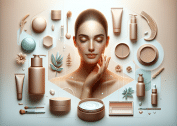
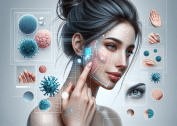

 Why You Might Rethink Renting Versus Buying
Why You Might Rethink Renting Versus Buying 